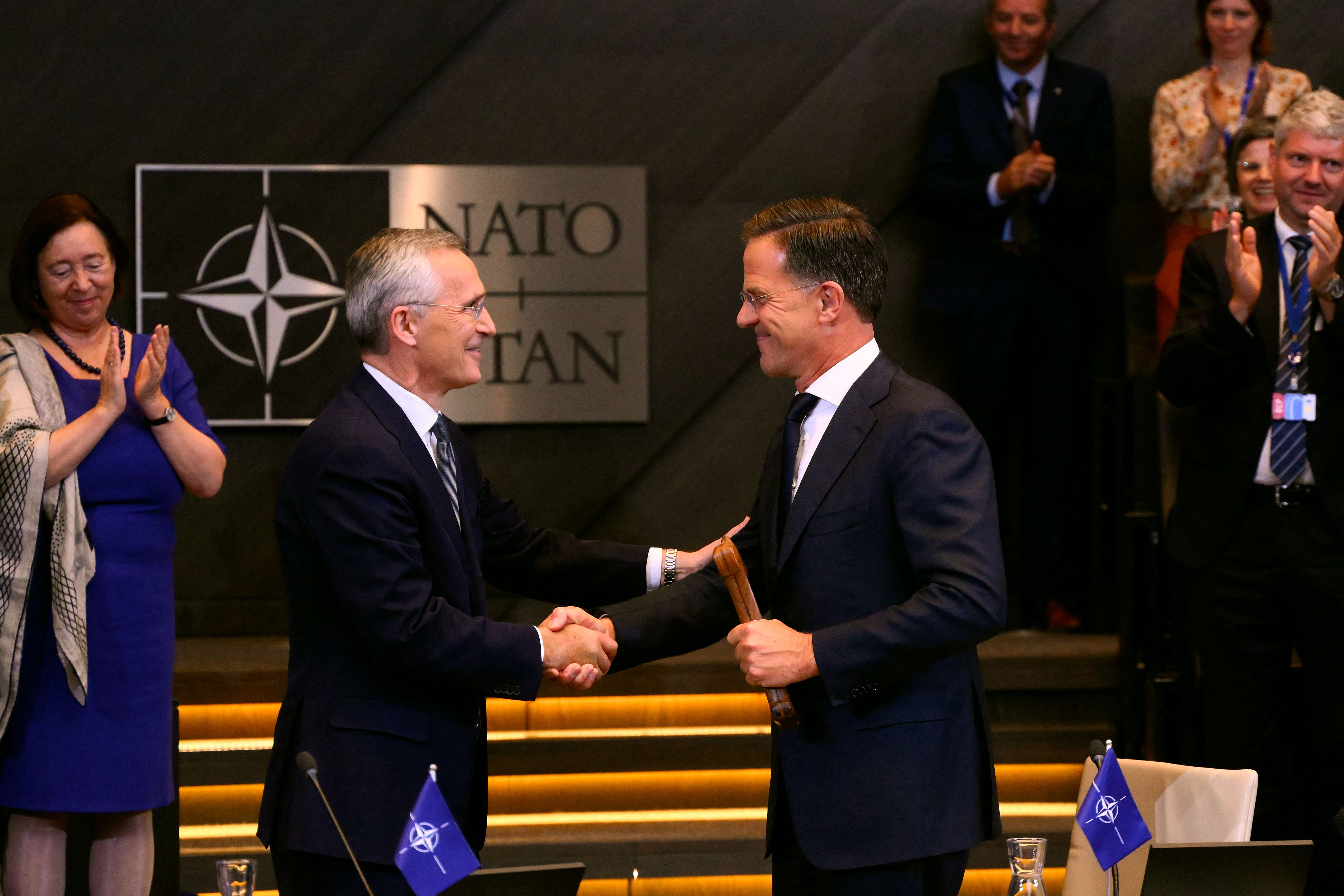Mark Rutte succeeds Jens Stoltenberg as new secretary general of NATO

Former Dutch prime minister Mark Rutte took over as NATO's new secretary general on Tuesday, succeeding Jens Stoltenberg, who led the military alliance for ten years. Rutte immediately outlined his top priority as continuing NATO's support for Ukraine and helping Kyiv remain independent amid the ongoing war with Russia.
The day's events began with a wreath-laying ceremony at NATO headquarters, where Rutte and Stoltenberg honored victims of NATO missions. They then met with ambassadors from NATO's 32 member states. Briefly addressing the press, Stoltenberg expressed confidence in Rutte's leadership. "NATO is in good hands," he said, praising Rutte’s extensive experience as the head of four Dutch governments. "He has the perfect background. He knows how to forge compromises."
Defence spending increase
Under Stoltenberg’s leadership, NATO saw an increase in member states dedicating at least 2 per cent of their GDP to defence, an important milestone for the alliance. Finland and Sweden also joined NATO during his tenure, abandoning decades of neutrality after Russia's invasion of Ukraine. Rutte is expected to build on Stoltenberg's achievements, but he faces a significant challenge in maintaining unity within NATO, especially with the potential re-election of Donald Trump as US president next month.
"I am not worried about the outcome of the American presidential election on November 8," Rutte stated. "I know both candidates very well. I worked with Donald Trump for four years." He added that Kamala Harris is "enormously respected."
Ukraine top priority
Shortly before noon, Rutte is expected to hold his first press conference as NATO Secretary General. In his new role, he must address a number of pressing issues. NATO countries are actively sending weapons and ammunition to Ukraine, but they face substantial hurdles, including shortages of both and outdated military equipment. "The European defence industry is clearly not prepared for a new, large-scale conflict," Rutte acknowledged.
Beyond Europe, Rutte must also navigate rising tensions in the Middle East. Following ground offensives and continued bombardments in Gaza, Israel has expanded its attacks into Lebanon, targeting the Hezbollah organisation. With the potential for Iran's involvement, the situation risks further escalation. Rutte noted that while "NATO does not play a specific role in that conflict," the instability in the region adds to the broader challenges the alliance faces.
NATO's new secretary general Mark Rutte (R) shakes hands with outgoing NATO secretary general Jens Stoltenberg (L) © PHOTO JOHN THYS / AFP
Related news

